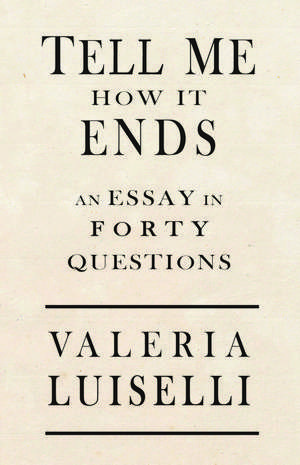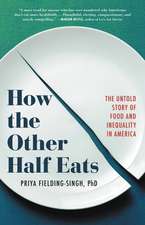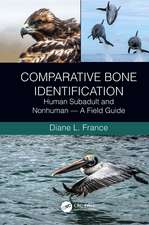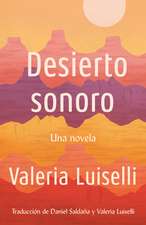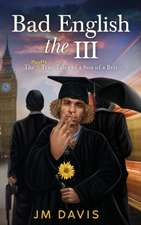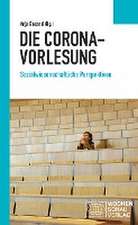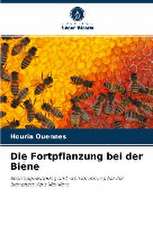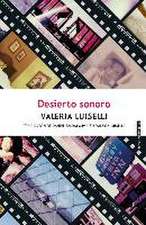Tell Me How It Ends: An Essay in 40 Questions
Autor Valeria Luisellien Limba Engleză Paperback – 3 apr 2017
Vezi toate premiile Carte premiată
Kirkus Prize (2017)
A damning confrontation between the American dream and the reality of undocumented children seeking a new life in the US.
| Toate formatele și edițiile | Preț | Express |
|---|---|---|
| Paperback (2) | 62.40 lei 22-36 zile | +5.07 lei 5-11 zile |
| HarperCollins Publishers – 5 oct 2017 | 62.40 lei 22-36 zile | +5.07 lei 5-11 zile |
| Coffee House Press – 3 apr 2017 | 86.82 lei 22-36 zile |
Preț: 86.82 lei
Nou
Puncte Express: 130
Preț estimativ în valută:
16.62€ • 18.06$ • 13.97£
16.62€ • 18.06$ • 13.97£
Carte disponibilă
Livrare economică 31 martie-14 aprilie
Preluare comenzi: 021 569.72.76
Specificații
ISBN-13: 9781566894951
ISBN-10: 1566894956
Pagini: 128
Dimensiuni: 127 x 191 mm
Greutate: 0.14 kg
Editura: Coffee House Press
Colecția Coffee House Press
ISBN-10: 1566894956
Pagini: 128
Dimensiuni: 127 x 191 mm
Greutate: 0.14 kg
Editura: Coffee House Press
Colecția Coffee House Press
Recenzii
“Books like Tell Me How It Ends are like dew on a spiderweb, revealing the often forgotten and sometimes ignored threads of humanity that connect us all.”—Josh Cook, Porter Square Books
“In the warrens of New York City’s federal immigration court, an adolescent boy from Honduras confronts a thoroughly confused immigration bureaucracy with the help of his translator, who is the author of this book. He is just one of thousands of immigrant children longing for permanence in this country, but we get to see him up close. With Valeria Luiselli as our guide, we navigate the corridors of a system that tries and fails to reconcile America’s long-standing welcome of the poor, the terrorized, and the adventurous with its current fear and mistrust of immigrants. In the frightening year of 2017 this is a most necessary book, and a unique one, from a writer whose clear-eyed intelligence and marvelous literary imagination make every one of her narratives a compelling read.”—Alma Guillermoprieto
“Compelling and urgent, Tell Me How It Ends gives a face and a name to the hundreds of thousands who have committed the innocent crime of geography: being born in a certain time and place. The bureaucratic labyrinth of immigration, the dangers of searching for a better life, all of this and more is contained in this brief and profound work. Tell Me How It Ends is not just relevant, it’s essential.”—Mark Haber, Brazos Bookstore
“In the hours Valeria Luiselli spends at the immigration courts in NYC, her duty is to listen to children tell her stories about their scars and how they got them. Like a morbid game show, the children’s answers determine their fate. The grand prize? Permanent citizenship, if all goes well. The alternative? Deportation. Bonus: due to the volume of cases, the standard intake form forgives only those who have the most gruesome traumas, wounds that they can show—and of course, the language to speak about them. Part treatise, part memoir, part call-to-action, Tell Me How It Ends inspires not through a stiff stance of authority, but with the curiosity and humility Luiselli has long since established. It may not cure your panic, but it sure as hell won’t feed it.”—Annalia Luna, Brazos Bookstore
“Valeria Luiselli’s Tell Me How It Ends is an important reminder that words matter. The questions we ask of others are built upon a foundation of assumptions about the past and expectations for the future. Appealing to the language of the United States’ fraught immigration policy, Luiselli exposes the cracks in this foundation. Herself an immigrant, she highlights the human cost of its brokenness, as well as the hope that it (rather than walls) might be rebuilt.”—Brad Johnson, Diesel Bookstore
“With gifted prose and a compassionate but penetrating gaze, Luiselli personalizes the ongoing plight of Latin American child migrants in the United States. Her own immersion as a translator informs a trenchant first-hand account of the labyrinthine legal processes and inevitable bureaucratic indifference faced by undocumented youth. Humane yet often horrifying, Tell Me How It Ends offers a compelling, intimate look at a continuing crisis—and its ongoing cost in an age of increasing urgency.”—Jeremy Garber, Powell’s Books
“Valeria Luiselli’s extended essay on her volunteer work translating for child immigrants confronts with compassion and honesty the problem of the North American refugee crisis. It’s a rare thing: a book everyone should read.”—Stephen Sparks, Point Reyes Books
“‘Tell me how it ends,’ the young daughter says to the mother. Valeria Luiselli uses this query, said of the heartbreaking, infuriating situation involving ‘undocumented’ Central American children and the legal system they encounter here that she movingly chronicles in this powerful essay. She helps call to question where we as people, as a people, are with innocent children, who or what is ‘alien,’ even the business of who is American, given that she casts this as a connective scenario, with what happens in Tegucigalpa being related to what happens in Hempstead, New York. In this we are all Americans, finally. Imagine being put into court systems without the language to speak, much less the adult language of law. And while this essay is brilliant for exactly what it depicts, it helps open larger questions, which we’re ever more on the precipice of now, of where all of this will go, how all of this might end. Is this a story, or is this beyond a story? Valeria Luiselli is one of those brave and eloquent enough to help us see.”—Rick Simonson, Elliott Bay Book Company
“Valeria Luiselli’s Tell Me How It Ends helped me see the crisis undocumented immigrants, especially children coming from Mexico and Central America, are facing in our country in much the same way Michelle Alexander’s The New Jim Crow helped me see how slavery’s legacy is being perpetuated in the mass incarceration of black Americans. As someone who has read every one of Luiselli’s books, I expected her writing here to be erudite and elegant, and it is, of course it is, but what I did not expect was for her writing to be this immediate and this personal. I did not expect to be hit this hard emotionally, to feel every fear and every longing in the deepest part of who I am. I can’t remember the last time I read something and had this kind of physical reaction. I felt this book in the tug behind my eyes, in these hands shaking, in this heart beating too quickly. This is a work I will share with everyone I know. This is something every American needs to face, and to feel.”—Kenneth Coble, King’s Books
“In an essay as bracing as it is searing, the incomparable Valeria Luiselli explores the 2014 immigration crisis. Luiselli writes with a clarity that underscores the nightmarish conditions and nonsensical bureaucracy undocumented children face on their passage to America and toward U.S. citizenship. Tell Me How It Ends evokes empathy as it educates. It is a vital contribution to the body of post-Trump work being published in early 2017.”—Katharine Solheim, Unabridged Books
“In the warrens of New York City’s federal immigration court, an adolescent boy from Honduras confronts a thoroughly confused immigration bureaucracy with the help of his translator, who is the author of this book. He is just one of thousands of immigrant children longing for permanence in this country, but we get to see him up close. With Valeria Luiselli as our guide, we navigate the corridors of a system that tries and fails to reconcile America’s long-standing welcome of the poor, the terrorized, and the adventurous with its current fear and mistrust of immigrants. In the frightening year of 2017 this is a most necessary book, and a unique one, from a writer whose clear-eyed intelligence and marvelous literary imagination make every one of her narratives a compelling read.”—Alma Guillermoprieto
“Compelling and urgent, Tell Me How It Ends gives a face and a name to the hundreds of thousands who have committed the innocent crime of geography: being born in a certain time and place. The bureaucratic labyrinth of immigration, the dangers of searching for a better life, all of this and more is contained in this brief and profound work. Tell Me How It Ends is not just relevant, it’s essential.”—Mark Haber, Brazos Bookstore
“In the hours Valeria Luiselli spends at the immigration courts in NYC, her duty is to listen to children tell her stories about their scars and how they got them. Like a morbid game show, the children’s answers determine their fate. The grand prize? Permanent citizenship, if all goes well. The alternative? Deportation. Bonus: due to the volume of cases, the standard intake form forgives only those who have the most gruesome traumas, wounds that they can show—and of course, the language to speak about them. Part treatise, part memoir, part call-to-action, Tell Me How It Ends inspires not through a stiff stance of authority, but with the curiosity and humility Luiselli has long since established. It may not cure your panic, but it sure as hell won’t feed it.”—Annalia Luna, Brazos Bookstore
“Valeria Luiselli’s Tell Me How It Ends is an important reminder that words matter. The questions we ask of others are built upon a foundation of assumptions about the past and expectations for the future. Appealing to the language of the United States’ fraught immigration policy, Luiselli exposes the cracks in this foundation. Herself an immigrant, she highlights the human cost of its brokenness, as well as the hope that it (rather than walls) might be rebuilt.”—Brad Johnson, Diesel Bookstore
“With gifted prose and a compassionate but penetrating gaze, Luiselli personalizes the ongoing plight of Latin American child migrants in the United States. Her own immersion as a translator informs a trenchant first-hand account of the labyrinthine legal processes and inevitable bureaucratic indifference faced by undocumented youth. Humane yet often horrifying, Tell Me How It Ends offers a compelling, intimate look at a continuing crisis—and its ongoing cost in an age of increasing urgency.”—Jeremy Garber, Powell’s Books
“Valeria Luiselli’s extended essay on her volunteer work translating for child immigrants confronts with compassion and honesty the problem of the North American refugee crisis. It’s a rare thing: a book everyone should read.”—Stephen Sparks, Point Reyes Books
“‘Tell me how it ends,’ the young daughter says to the mother. Valeria Luiselli uses this query, said of the heartbreaking, infuriating situation involving ‘undocumented’ Central American children and the legal system they encounter here that she movingly chronicles in this powerful essay. She helps call to question where we as people, as a people, are with innocent children, who or what is ‘alien,’ even the business of who is American, given that she casts this as a connective scenario, with what happens in Tegucigalpa being related to what happens in Hempstead, New York. In this we are all Americans, finally. Imagine being put into court systems without the language to speak, much less the adult language of law. And while this essay is brilliant for exactly what it depicts, it helps open larger questions, which we’re ever more on the precipice of now, of where all of this will go, how all of this might end. Is this a story, or is this beyond a story? Valeria Luiselli is one of those brave and eloquent enough to help us see.”—Rick Simonson, Elliott Bay Book Company
“Valeria Luiselli’s Tell Me How It Ends helped me see the crisis undocumented immigrants, especially children coming from Mexico and Central America, are facing in our country in much the same way Michelle Alexander’s The New Jim Crow helped me see how slavery’s legacy is being perpetuated in the mass incarceration of black Americans. As someone who has read every one of Luiselli’s books, I expected her writing here to be erudite and elegant, and it is, of course it is, but what I did not expect was for her writing to be this immediate and this personal. I did not expect to be hit this hard emotionally, to feel every fear and every longing in the deepest part of who I am. I can’t remember the last time I read something and had this kind of physical reaction. I felt this book in the tug behind my eyes, in these hands shaking, in this heart beating too quickly. This is a work I will share with everyone I know. This is something every American needs to face, and to feel.”—Kenneth Coble, King’s Books
“In an essay as bracing as it is searing, the incomparable Valeria Luiselli explores the 2014 immigration crisis. Luiselli writes with a clarity that underscores the nightmarish conditions and nonsensical bureaucracy undocumented children face on their passage to America and toward U.S. citizenship. Tell Me How It Ends evokes empathy as it educates. It is a vital contribution to the body of post-Trump work being published in early 2017.”—Katharine Solheim, Unabridged Books
Notă biografică
Valeria Luiselli was born Mexico City and 1983 and grew up in South Africa. A award-winning novelist (The Story of My Teeth and Faces in the Crowd) and essayist (Sidewalks), her work has been translated into many languages and has appeared in publications including the New York Times, the New Yorker, Granta, and McSweeney's.
Descriere
Descriere de la o altă ediție sau format:
A moving, eye-opening polemic about the US-Mexico border and what happens to the tens of thousands of unaccompanied Mexican and Central American children arriving in the US without papers
A moving, eye-opening polemic about the US-Mexico border and what happens to the tens of thousands of unaccompanied Mexican and Central American children arriving in the US without papers
Premii
- Kirkus Prize Finalist, 2017
